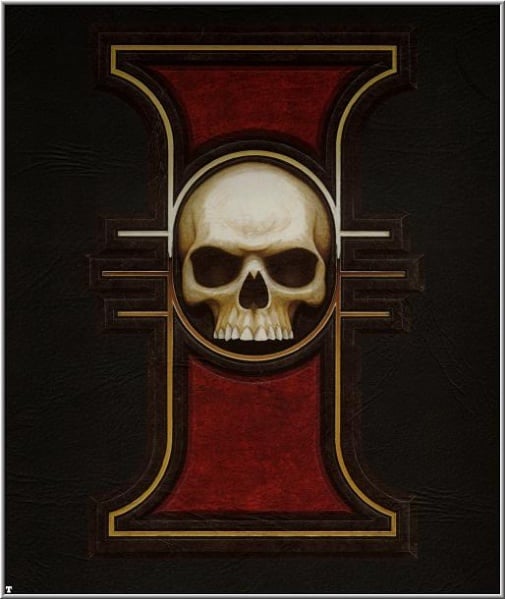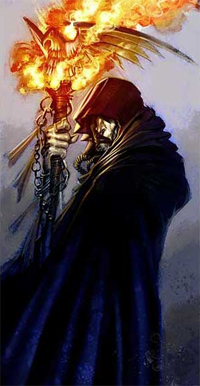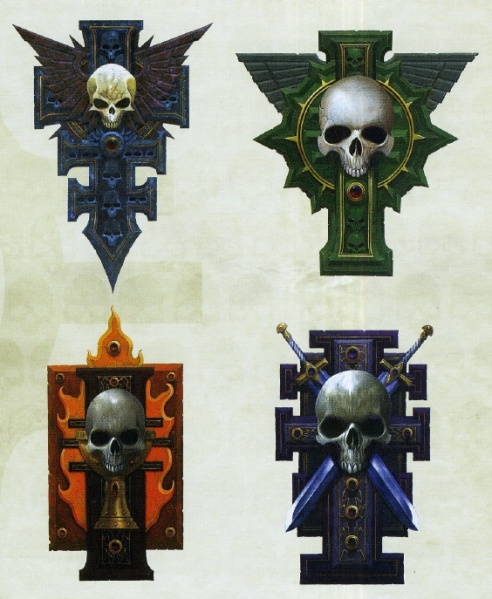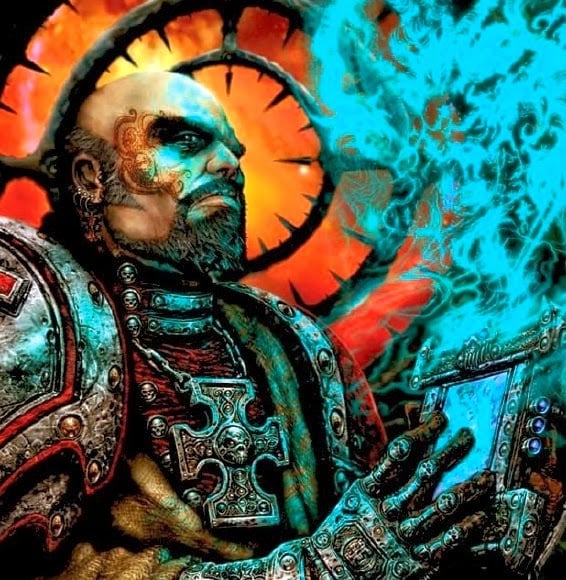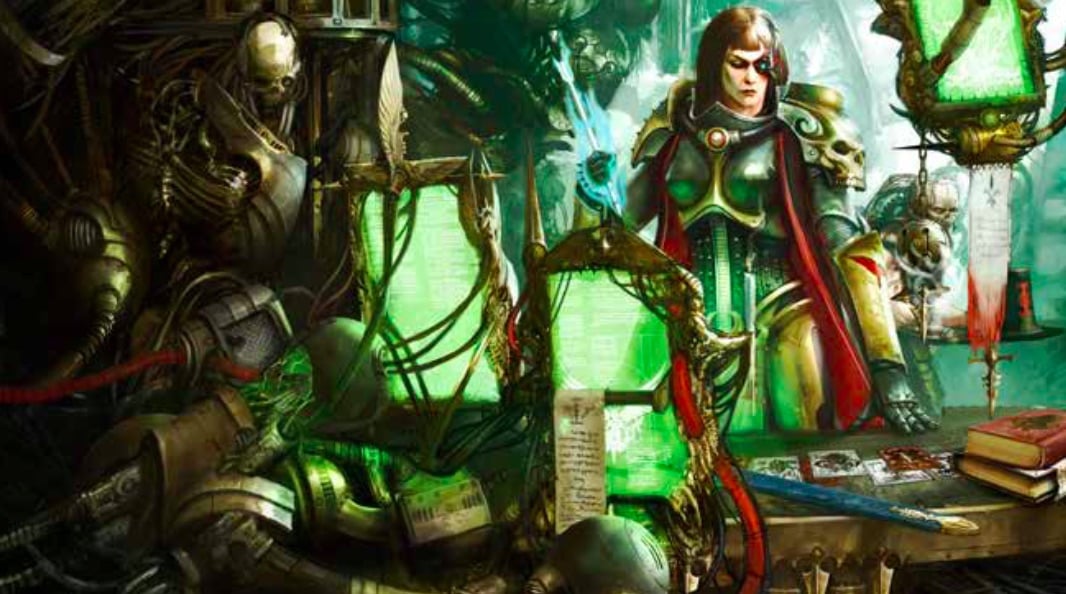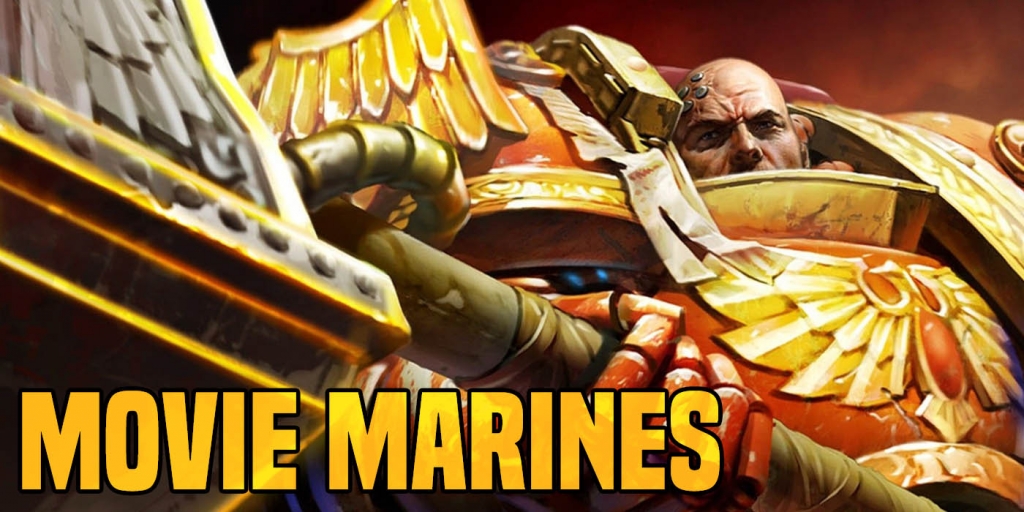40K Loremasters: The Inquistion
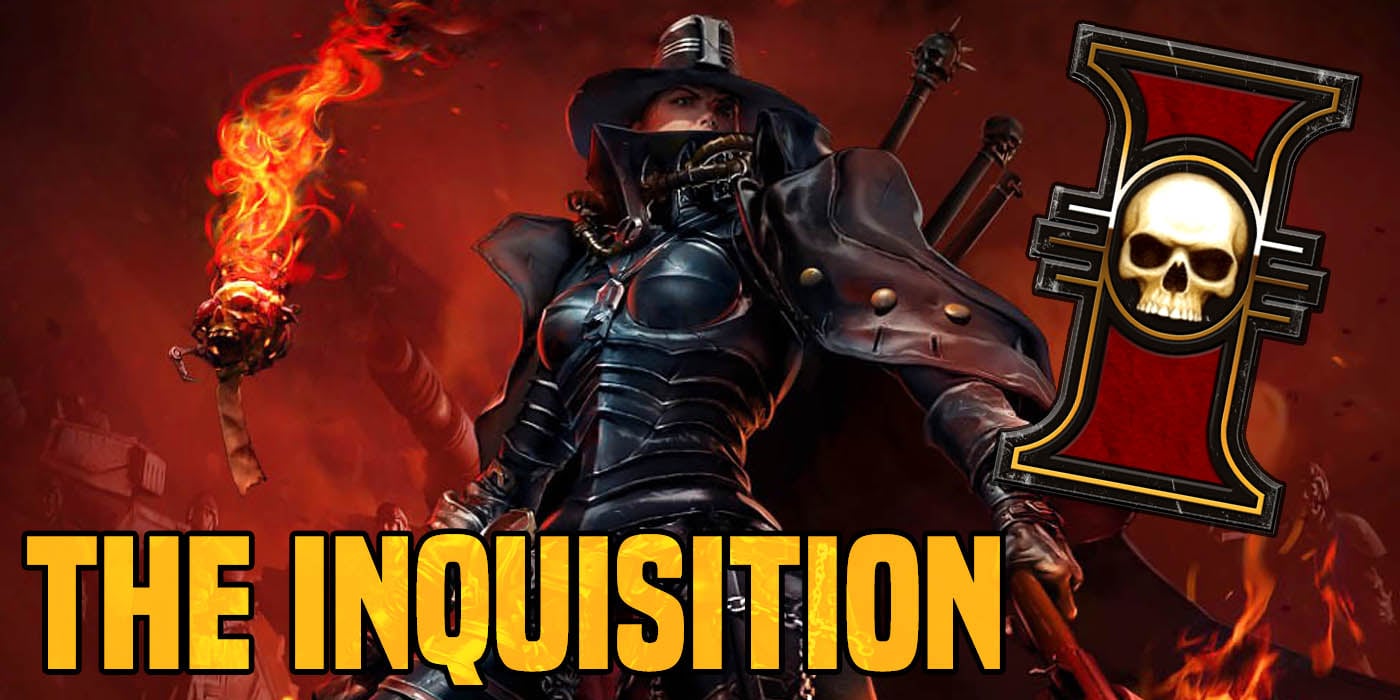
Today Loremasters we turn our eyes to the watchers over mankind with unlimited powers to protect their charge – the Inquisition.
The Holy Orders of the Emperor’s Inquisition, more commonly known as the Inquisition, are the powerful secret police of the Imperium responsible for guarding the souls of humanity. The purpose of the Inquisition is to identify and destroy the myriad of potential threats to the Imperium and humanity. Such is the Inquisition’s power that it answers only to the Emperor.
Founded in the aftermath of the Horus Heresy, the organisation’s members are agents known as Inquisitors.
History
The actual founding of the Inquisition is shrouded in mystery and there are at least two different stories surrounding its formation.
The first is that in the twilight hours prior to His internment within the Golden Throne, while Terra lay besieged by the traitor forces of Warmaster Horus, the Emperor of Mankind commanded Malcador the Sigillite to seek out “men of character, skill, and determination” to be tested and trained so that an elite group of investigators might be tasked to discover the alien, mutant, and heretic. Immediately prior to his assault on Horus’s battle barge, Malcador presented twelve individuals to the Emperor – eight Astartes and four humans – whom he had gathered in response to the Emperor’s commands. The Astartes were described as having cast aside their allegiance to their Primarchs and Legions who had sided with Horus; Malcador went on to say that they were blessed with paranormal skills which were best suited for combating the horrors that had recently emerged from the warp.
Although the identities of the twelve presented to the Emperor were never revealed, it is known that among those individuals recruited by Malcador were Captain Nathaniel Garro of the Death Guard, Captain Iacton Qruze of the Luna Wolves, and Sister of Silence Amendera Kendel.
The second story is that, immediately after the Emperor was interred in his Golden Throne, four trusted servants of the Emperor gathered in secret to discuss what was to happen next. Their opinions were divided; two believed the Emperor could be returned to life, the other two believed it folly to interfere with the events that had unfolded. The two resurrectionists, known as Promeus and Moriana, left Terra to begin their quest to bring the Emperor back to life. The two that remained acted quickly to establish themselves with the Senatorum Imperialis and created an organisation to combat the efforts of Promeus and Moriana, and it was from this seed that the Inquisition was formed.
It is not known whether these two stories are simply a case of conflicting background, or whether both stories contain some element of truth. It is said that when the Senatorum Imperialis was convened on the first anniversary of the Emperor’s Ascension, a grim-faced man joined the council and identified himself as a representative of the Holy Orders of the Emperor’s Inquisition. The fact that they called themselves “Orders” plural could be taken to suggest that the early Inquisition was an amalgamation of several organisations.
Inquisitorial Ordos
Ordos are a major operational subfaction within the Imperial Inquisition. As the Inquisition possesses neither a formalized hierarchy nor leadership, each Inquisition is free to pursue the mission of humanity’s survival in the manner they see most appropriate. Like-minded individuals gather together to investigate areas of mutual interest and concern, as bounded by one of the many Inquisitorial Ordos. Each Ordo comes and goes with the times, for many Inquisitors move freely between them according to their own whims and judgement. Ordos can grow larger in crises and then exist only on paper until its field becomes relevant once more. Association with an Ordo is not a matter of absolute allegiance, nor does it preclude an Inquisitor’s involvement in matters pertaining to another Ordo.
Currently within the modern Inquisition of M41 there are three Ordos Majoris (Xenos, Malleus, and Hereticus), and an unknown number of Ordos Minoris. These branches are ever-present for their mission is considered never-ending. Each branch specialises in the combat and investigation of specific threats to the Imperial domain. While Inquisitors from any Ordo are trained to deal with all potential dangers, it is the role of the Ordos to produce agents who are particularly adept at understanding and destroying specific abominations. Membership in an Ordo is not mandatory, and there are those Inquisitors who prefer not to join one.
- The Ordo Malleus (The Threat Beyond) – Destroys daemonic threats and investigates the nature of the Daemon. The Ordo came into being immediately after the Horus Heresy, and therefore has been a part of the Inquisition from the beginning.
- The Ordo Hereticus (The Threat Within) – Investigates and roots out heresy, mutation, and rogue psykers from humanity, and polices the Ecclesiarchy. The Ordo Hereticus was founded following the events of the Age of Apostasy.
- The Ordo Xenos (The Threat Without) – Investigates and eliminates alien influence and plots against the Imperium. It is not known when the Ordo Xenos was founded, however it is believed to be of a similar age to the Ordo Malleus
Inquisitorial Conclaves, Cabals, and Cells
As well as the Ordos, there are many types of Inquisitorial groupings that an Inquisitor may belong to, however as with the Ordos, membership in these is not mandatory.
- Conclaves – Inquisitorial Conclaves can take two forms. The first is a gathering called by an Inquisitor (if called by an Inquisitor Lord it is termed a “High Conclave”) to discuss a particular subject. There are also more permanent regional Conclaves; these are federations of Inquisitors who watch over a particular area of Imperial space. The larger of these regional Conclaves may have resources such as ships, armies, fortresses, and libraries for the use of their members. Not all sectors of Imperial space are covered by a Conclave, and some areas are devoid of a permanent Inquisitorial presence. The head of each regional Conclave is normally an Inquisitor Lord, and is nominally appointed by the High Lords of Terra. There are also Conclaves operating at the Segmentum level, again headed by an Inquisitor Lord.
- Cabals – A Cabal is a rare body instituted by a Conclave and dedicated to investigating a particular matter. Generally they gather Inquisitors from varied backgrounds and philosophies to form a specialist task-force. Often, Cabals are despised by many who see them as secret societies within a Conclave.
- Cells – Similar to a Cabal, a Cell is an ad-hoc group of Inquisitors who share a common goal. Often they are factional in nature, or are formed to confront a particular problem. The principle difference between Cabals and Cells is that the latter are entirely informal and are transitive in nature. Often one or more of the Inquisitors in the Cell will work overtly through investigation while the rest proceed through infiltration
Role Within the Imperium
As a completely autonomous Imperial organisation beyond the power of the Adeptus Terra, the Inquisition is immensely powerful. As the Inquisition’s duties involve the scrutiny and policing of the other organisations of the Imperium, the Inquisition itself is answerable to no higher power except the Emperor. No one, except the Emperor himself, is beyond the scrutiny of the Inquisition. This power is officially known as the Inquisitorial Remit or Inquisitorial Mandate.
With the exception of the Ministorum (which, in any case is still under outside Imperial restrictions), the Inquisition is the only organisation of Imperial government that is completely autonomous. Unlike other Imperial organisations, it is not a branch of the massive Adeptus Terra, but a self-contained organisation answerable only to itself. The Inquisition itself uses compounds scattered throughout the Imperium known as Inquisitorial Fortresses as its bases of operation.
The role of the ordinary Inquisitor is to investigate and deal with all potential threats to mankind and the Imperium. In the eyes of the Inquisition, there are multitudes of such potential threats. The main threat is posed not by invading aliens, but from within, by corruption and disloyalty within the Imperial organisations, as well as by psykers. The other threat posed from within is that of mutation, the constant corruption of the human gene-pool. There are no bounds to the Inquisition’s area of responsibility: alien plots, mutation, political corruption, and incompetence all come under their jurisdiction.
If required, Inquisitors may call on the service and/or resources of any Imperial servant or organisation. Not even a High Lord of Terra may refuse the order of an Inquisitor without good reason. This power extends across the Adeptus Astartes and the Adeptus Mechanicus (however, learned Inquisitors show discretion and request the assistance of the Space Marines and attempt not to anger the Adepts of Mars).
The role of the Inquisition requires proactivity and efficiency unbound by the dogmatic bureaucracy common to most other Imperial departments. Accordingly, there is little in the way of hierarchy or departmentalisation within the Inquisition. Authority within the Inquisition is governed by two factors – reputation and influence. Seniority is in itself no indicator of authority, however most Inquisitors will take heed of the wisdom of an older and more experienced peer.
Because the Inquisition are the watchdogs of the Imperium, answerable only to themselves, given almost absolute power, along with such broad jurisdiction, corruption is an ever present danger. Its integrity is therefore upheld by constant self-policing and scrutiny. In the earliest editions of the background, this was the stated role of the Ordo Malleus, which were the Inquisition’s secretive Inner Order.
As per the Inquisitorial Remit, Inquisitors hold the absolute power to judge all who fall beneath their gaze. The Inquisition holds countless paths to death that usually correspond to the level of guilt of the condemned. The horrors of arco-flagellation, Penal Legion conscription, or binding to a Penitent Engine are a small sample of unique forms of penitence and absolution that Inquisitors use on a regular basis.
Inquisitors have the authority to condemn an entire world to Exterminatus if it is deemed to be irredeemably corrupt. Exterminatus, the obliteration of a world, is only resorted to when the level of corruption a world bears is so monumental that it cannot be wiped out by any other means.
Learn More of the Inquisition’s Myriad Minor Ordos
Lexicanum
~Knowledge is power, guard it well.

